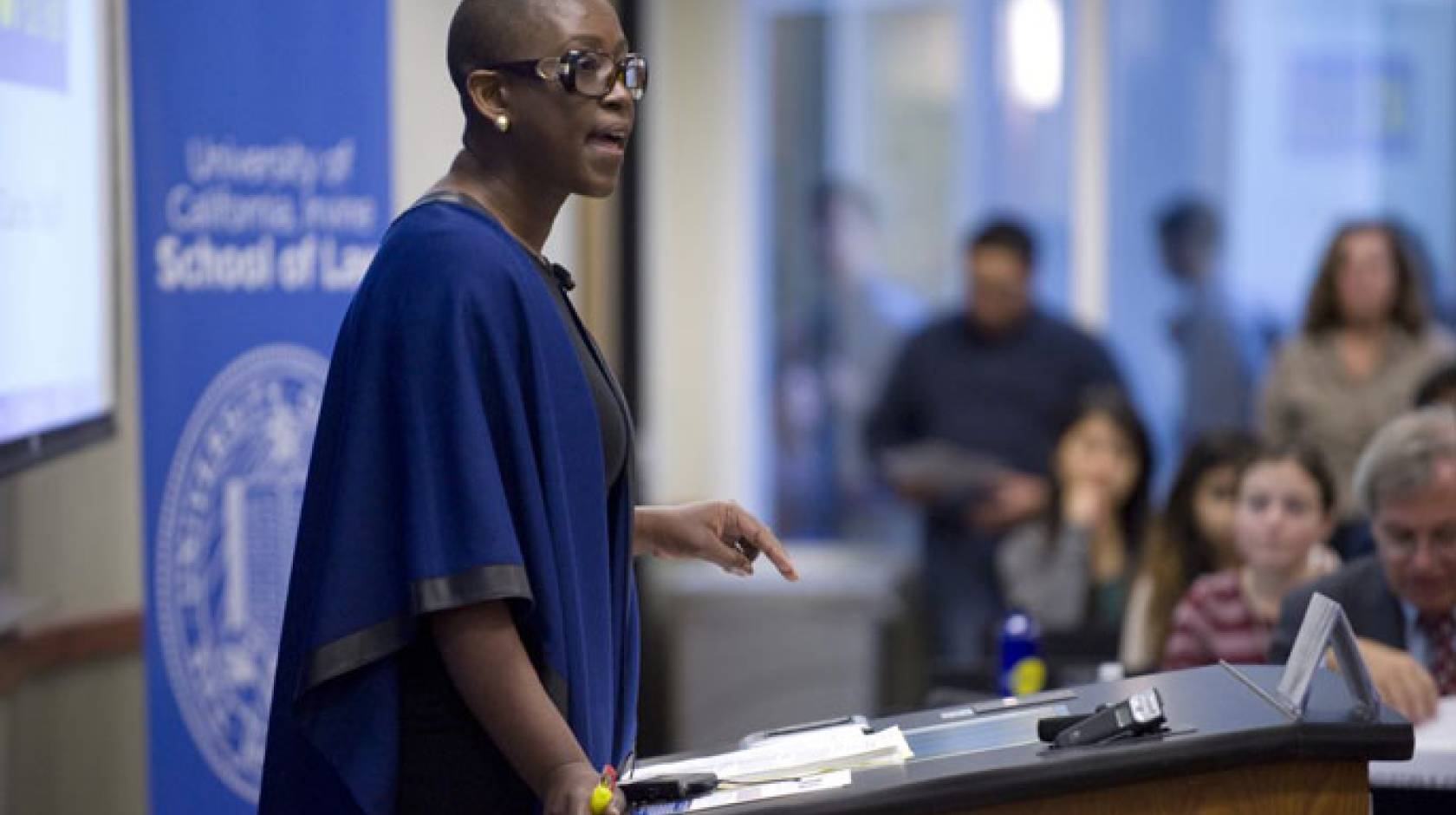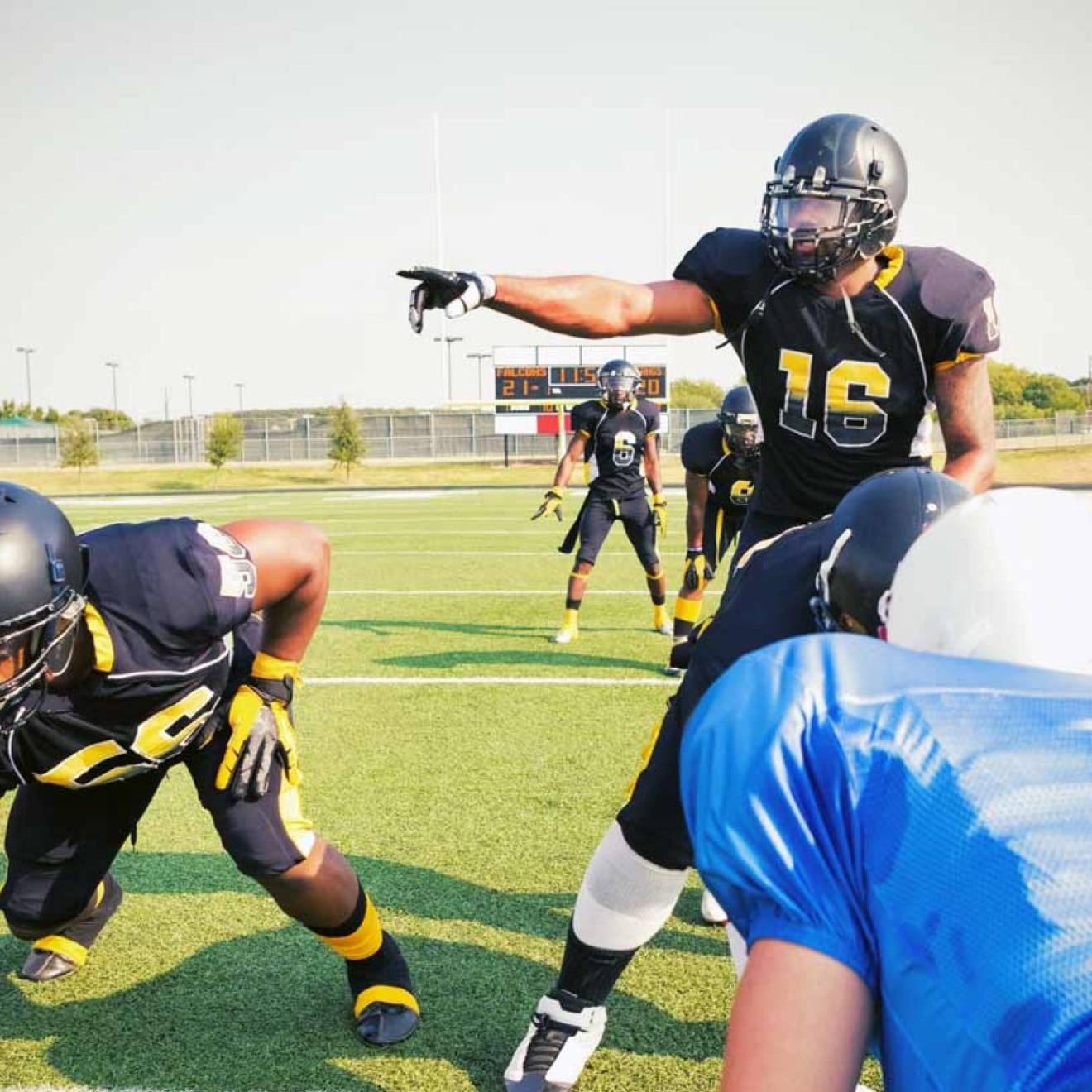Roy Rivenburg, UC Irvine

The seven gunshots that ended Philando Castile’s life during a traffic stop in Minnesota echoed across thousands of miles to University of California, Irvine law professor Michele Goodwin, rekindling memories of her own haunting encounter with a police officer.
Stirred by raw video footage of the July shooting’s aftermath — which Castile’s fiancée livestreamed on Facebook — Goodwin sprang into action. She assembled a national task force on gun violence and took its scholars, psychologists, police, clerics and victims on the road last fall to Chicago and Washington, D.C.
Unlike other firearm activists — who often focus on stricter background checks or assault weapon bans — Goodwin seeks to promote research. In particular, her Initiative for Studying Gun Violence & Trauma wants lawmakers to repeal a 1998 measure that hampers the Centers for Disease Control’s ability to examine the issue.
“The government has done all sorts of studies on tobacco, opioids and alcohol,” notes Goodwin, Chancellor’s Professor of law. “Why not guns? Between 2000 and 2014, firearms accounted for nearly 470,000 fatalities in the U.S. That’s like wiping out everyone in Atlanta.”
Generating affinity
During a November trip to Washington for a special congressional briefing, a standing-room-only town hall event and a White House meeting, Goodwin’s team lobbied for a “gun czar” to address such matters as police shootings of unarmed blacks and the psychological effects of firearm mayhem on various communities.
In the wake of Castile’s death in Minnesota, Goodwin published an essay describing a police run-in she had near Chicago in 1999. Like Castile’s fiancée, she was an African American woman traveling with a 4-year-old daughter in the back seat when she was pulled over. It was late at night, and the officer wore civilian clothes and drove an unmarked car. When Goodwin asked to see his badge and said she would drive off if he wasn’t a cop, he began pounding her car with his flashlight and shouting racial epithets, she says. “At that point, my friend, whose seat was fully reclined, woke up and screamed,” Goodwin writes. “Strangely, this seemed to calm the officer. He saw that my friend, a psychotherapist, is white.”
After the essay appeared online, Goodwin heard from white readers who said the story enabled them to empathize with Castile. Why did Goodwin’s account resonate in a way the video hadn’t? Perhaps her profession and education made a difference, she theorizes: “People ascribe more credibility to sources with whom they share affinities.”
And that raises another question: Will it be tougher to sell her anti-gun-violence agenda to a Republican president whose platform seemed friendly to the National Rifle Association?
Not necessarily, Goodwin says, but some tactics will need to shift. “The election showed that people aren’t talking with one another,” she says, an impasse she hopes to ease partly through her task force’s use of town hall meetings, which she calls “the next-best thing to breaking bread with each other, because we hear from people whose lives have been transformed by gun violence, and we forge a conversation.”
A fresh approach to building alliances
Goodwin says her group may also try to reframe the gun debate by emphasizing economic arguments, which might play better with conservatives. “There’s a much greater need to talk across party lines,” she says. For example, to win support for measures designed to reduce police shootings, the team could emphasize the multimillion-dollar lawsuit payouts cities are making. “The trend is not sustainable,” she says.
With other firearm deaths too, “there are financial costs beyond human life that need to be tracked,” Goodwin says. “That will help break the stalemate over gun control laws.”
In March, the task force heads to Los Angeles for a town hall gathering on “the militarization of policing.” After that, the group will reflect on how its initial efforts fared, analyze the first 100 days of Donald Trump’s presidency, then plan its next steps, Goodwin says. “We’ll also continue to serve as a clearinghouse of information on this issue,” she says. “Our job is to help enlighten people.”

